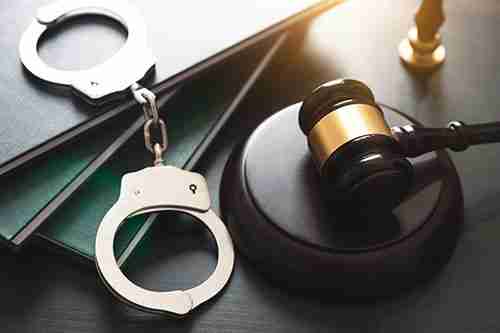Welcome to our comprehensive guide on understanding the probation process in Georgia. Probation serves as an alternative to incarceration, providing individuals with an opportunity to serve their sentence while under supervision within the community. In this article, we will delve into the intricacies of how probation works in Georgia, covering pre-sentencing considerations, the stages of probation, the rights and responsibilities of those involved, and how a probation violation lawyer can help you!
2 Types of Probation: Supervised vs Unsupervised
In Georgia, criminal cases may involve two main types of probation: supervised probation and unsupervised probation. These two forms of probation differ in terms of the level of supervision and the conditions imposed on the individuals. Let’s explore the distinctions between supervised and unsupervised probation:
Supervised Probation:
Supervised probation in Georgia involves direct oversight and monitoring by a probation officer assigned to the case. The probation officer plays a significant role in ensuring compliance with the court’s orders and helping individuals successfully complete their probationary period. Here are some key features of supervised probation:
- Regular Check-Ins: Individuals on supervised probation must report to their probation officer at specified intervals. These check-ins allow the probation officer to monitor progress, address any concerns or violations, and provide guidance and support.
- Conditions and Restrictions: Supervised probation often comes with specific conditions and restrictions tailored to the individual’s offense and circumstances. These may include attending counseling or treatment programs, maintaining employment or education, refraining from drug or alcohol use, and participating in community service.
- Home Visits and Drug Testing: Probation officers may conduct home visits to verify compliance with the probation terms. They may also administer random drug tests to ensure individuals are abstaining from prohibited substances.
- Support and Guidance: Probation officers provide support and guidance throughout the probationary period. They assist individuals in accessing resources such as counseling, employment assistance, or educational programs to promote successful rehabilitation.
Unsupervised Probation:
Unsupervised probation, also known as informal probation, involves fewer restrictions and a lower level of supervision compared to supervised probation. Individuals on unsupervised probation are typically not assigned a probation officer, but they are still required to fulfill certain obligations and meet specified conditions. Here are some key aspects of unsupervised probation:
- Limited Oversight: With unsupervised probation, there is no direct monitoring by a probation officer. Individuals are responsible for ensuring compliance with the court-ordered conditions without regular check-ins.
- Compliance with Conditions: Individuals on unsupervised probation must still adhere to the conditions set by the court. These may include paying fines or restitution, attending counseling or treatment programs, or completing community service hours.
- Self-Reporting: Unlike supervised probation, individuals on unsupervised probation do not have to report to a probation officer. However, they may still be required to provide periodic updates to the court regarding their progress and compliance.
- Freedom of Movement: Unsupervised probation generally allows individuals more freedom of movement compared to supervised probation. However, they are still obligated to fulfill their probation requirements and should not engage in criminal activities.
It’s important to note that the type of probation imposed in a criminal case depends on various factors, including the nature of the offense, the individual’s criminal history, and the judge’s discretion. Whether an individual is placed on supervised or unsupervised probation, compliance with the court’s orders and the specified conditions is essential to successfully completing the probationary period. Consulting with a knowledgeable attorney can provide further guidance and ensure a clear understanding of the obligations and responsibilities associated with probation.
Pre-Sentencing Considerations
Before an individual is placed on probation in Georgia, the court carefully evaluates various factors. These factors may include the nature of the offense, the defendant’s criminal history, and the recommendations provided by probation officers or other relevant professionals. The judge considers these elements to determine if probation is a suitable alternative to imprisonment for the defendant.
The Stages of Probation
1. Sentencing and Probation Imposition
Once the court determines that probation is appropriate, the judge imposes the sentence, which includes probation as a component. The terms and conditions of probation are established, taking into account the specific circumstances of the case and the needs of the defendant.
2. Reporting to a Probation Officer
Upon being placed on probation, the defendant is assigned a probation officer who will supervise their progress and ensure compliance with the court’s orders. The defendant must report to their probation officer as scheduled, providing necessary information and updates on their activities and compliance with probation terms.
3. Compliance with Probation Terms
Probation terms typically involve a range of conditions that the defendant must meet during their probationary period. These conditions may include regular check-ins, community service, employment or education requirements, restitution payments, refraining from drug or alcohol use, and maintaining good behavior.
4. Supervision and Monitoring
The probation officer plays a crucial role in supervising and monitoring the defendant’s compliance with probation terms. They may conduct regular meetings, home visits, drug tests, and interviews with the defendant’s employers, family members, or other relevant parties to assess progress and address any concerns.
5. Treatment and Rehabilitation Programs
In certain cases, probation may require participation in treatment or rehabilitation programs tailored to address specific issues such as substance abuse, anger management, or mental health concerns. Compliance with these programs is essential for successful completion of probation.
6. Progress Evaluation
Throughout the probationary period, the probation officer evaluates the defendant’s progress and reports to the court. Positive progress, adherence to probation terms, and rehabilitation efforts may be taken into consideration when determining further actions or modifications to the probation conditions.
7. Violation and Consequences
If a defendant violates the terms of their probation, it can lead to serious consequences. Violations may include failure to report to the probation officer, committing new offenses, or not complying with specific conditions. The probation officer will document the violation and submit a report to the court, which may result in a probation violation hearing.
Probation Requirements
In Georgia, the standard requirements of probation may vary depending on the specific circumstances of the case and the judge’s discretion. However, there are several common requirements that are typically imposed as part of probation. These standard requirements aim to promote rehabilitation, ensure public safety, and monitor the individual’s compliance with the court’s orders. Here are some of the standard requirements of probation in Georgia:
Regular Check-Ins
Individuals on probation are required to report to their assigned probation officer at specified intervals. These check-ins allow the probation officer to monitor the individual’s progress, address any concerns, and ensure compliance with the conditions of probation.
Employment or Education
Probation often includes a requirement to maintain employment or pursue education as a means of promoting stability and personal growth. The individual may be required to provide documentation of their employment or enrollment in an educational program.
Payment of Fines and Restitution
Probation may involve the obligation to pay fines, court costs, or restitution to the victim as ordered by the court. The individual is typically required to make regular payments toward these financial obligations.
Counseling or Treatment Programs
Depending on the nature of the offense, individuals may be mandated to participate in counseling or treatment programs. These programs may address issues such as substance abuse, anger management, or mental health concerns. Compliance with the recommended treatment is crucial for successful completion of probation.
Community Service
Probation often involves a requirement to perform a certain number of community service hours. This serves as a way for individuals to give back to the community and make amends for their actions.
Abstaining from Illegal Substances
Individuals on probation are typically prohibited from using illegal drugs or consuming alcohol. They may be subject to random drug testing to ensure compliance with this condition.
Restraining Orders and No-Contact Orders
In cases involving domestic violence or harassment, the court may issue restraining orders or impose no-contact orders. Individuals on probation must adhere to these orders and avoid contact with the protected parties.
Good Behavior
Probation requires individuals to exhibit good behavior during their probationary period. This includes refraining from engaging in criminal activities and maintaining a law-abiding lifestyle.
It’s important to remember that the specific requirements of probation can vary based on the circumstances of the case and the judge’s discretion. Additionally, probation violations can result in more severe consequences or modifications to the probation terms. Therefore, it is essential to consult with a knowledgeable attorney to understand the specific requirements and obligations associated with probation in your particular case.
Conclusion
Navigating the probation process in Georgia requires a comprehensive understanding of the stages involved, the rights and responsibilities of the parties, and the potential consequences of violations. By adhering to the conditions of probation, actively engaging in rehabilitation efforts, and maintaining open communication with the probation officer, individuals can successfully complete their probationary period and move forward with their lives. For more detailed information, consult with a qualified probation violation lawyer at SHElaw firm® who can provide personalized guidance tailored to your specific circumstances.









